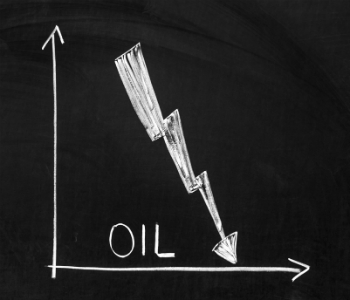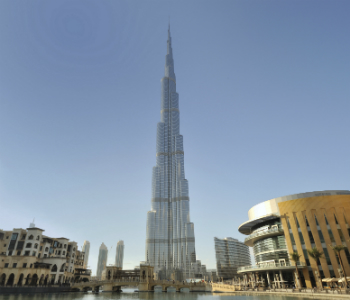Despite difficult economic times due to declining oil prices, the Middle East security market continues to grow.
The Middle East (ME) as a region is not one that has needed to compromise their security investment due to budget concerns. Utilizing its oil and tourism income, the ME has used this money to spur local infrastructure, such as roads, highways, telecommunications, and public transit.
However, the situation has changed in the past three years and will continue to change in the coming years. Now, the these countries must find a way to reduce its dependence on oil revenue, which has decreased as a result of the oversupply of oil, decrease in global demand, increase in competition with US players, and strong US dollar.
Security market remains strong despite economic woes
 Fiscal deficits in Gulf Cooperation Council
Fiscal deficits in Gulf Cooperation Council
countries are growing, as global oil prices drop.
According to the International Monetary Fund (IMF), the average fiscal deficits of Gulf Cooperation Council (GCC) members are expected to reach 13 percent of their GDP. A major cause for this has been the plummet of oil prices.
Fortunately, security investment from local governments still remains high. “Government projects and royal projects will still continue to grow because there is a huge fear of terrorism. Certainly in the Emirates, we are seeing a higher level of interest in putting added layers of security in the royal palaces and government projects,” said the sales manager of Optex Europe.
Regional conflicts and its unique geographic location have resulted in an always heightened demand for security. According to Frost & Sullivan, the ME physical security market is expected to be worth US$10.9 billion by 2020, up from $3 billion in 2014.
Even though security demand is still high, an obvious slowdown in terms of growth rate this year was noted by major local companies.
“We are seeing more projects in the market place by some delays in the decision-making process for large infrastructure projects,” said Mark Horton, Regional Sales Director for the ME at G4S. “Current projects are not being cancelled, but the delivery window is being lengthened.”
Yalcin Demirak, Area Sales Manager of the ME at Grundig said, “The Middle East is still the most growing region in EMEA for us. Some government projects are frozen in certain countries, but on the other hand we have other countries where we expect an abnormal growth. So at the end, it’s really growing positively.”
According to Frost & Sullivan, the ME physical security market is expected to be worth US$10.9 billion by 2020, up from $3 billion in 2014.
Pradeep Nair, Regional Sales Director of South ME at Pelco by Schneider Electric said, “We hear that there are challenges in finalizing the new contracts in commercial projects; however, talking about the security market, it’s still very active, where Pelco is well positioned in large-scale infrastructure projects.”
It was also noted that harder economic times does mean that ME end customers have in fact become more concerned about price during procurement, as well as more aware of the overall cost from the implementation, such as after-sales service and maintenance.
Implementing world-class solutions
One of the most appealing factors about the ME for global solution providers is the high percentage of greenfield projects.
 Development projects around the ME of cities,
Development projects around the ME of cities,
townships, malls, hotels, etc., is driving security growth
“The Middle East region offers many greenfield projects that create opportunities for the latest IP technologies in physical security to be deployed,” said Wael Abdallah, GM of NIT, a value-added IP security distributor. “The Middle East has been one of the fastest growing and first regions in the world to deploy surveillance and particularly IP-based solutions. Such installations have surpassed traditional analog systems.”
Abdallah pointed out that the ME region is undergoing many infrastructure development projects, including building cities, townships, airports, malls, and hotels, all of which has translated into producing some of the highest GDPs per capita globally. “The physically security sector continues to grow rapidly at an approximate rate of 10 percent globally, whereby the Middle East region boasts a superior 15 percent over the same period,” he said. “This is in response to the evolving and increasing demand for smarter and technologically advanced security systems to ensure safety.”
Gareth O’Hara, Sales and Marketing Director of Paxton Access said, “I think the beauty about the market here is that there is such a diverse range of building types and we have recently won projects across a variety of sectors including financial, health care, and in retail. In the hotel sector, we are not finding an increasing level of interest particularly with Net2 Entry IP door entry systems.”